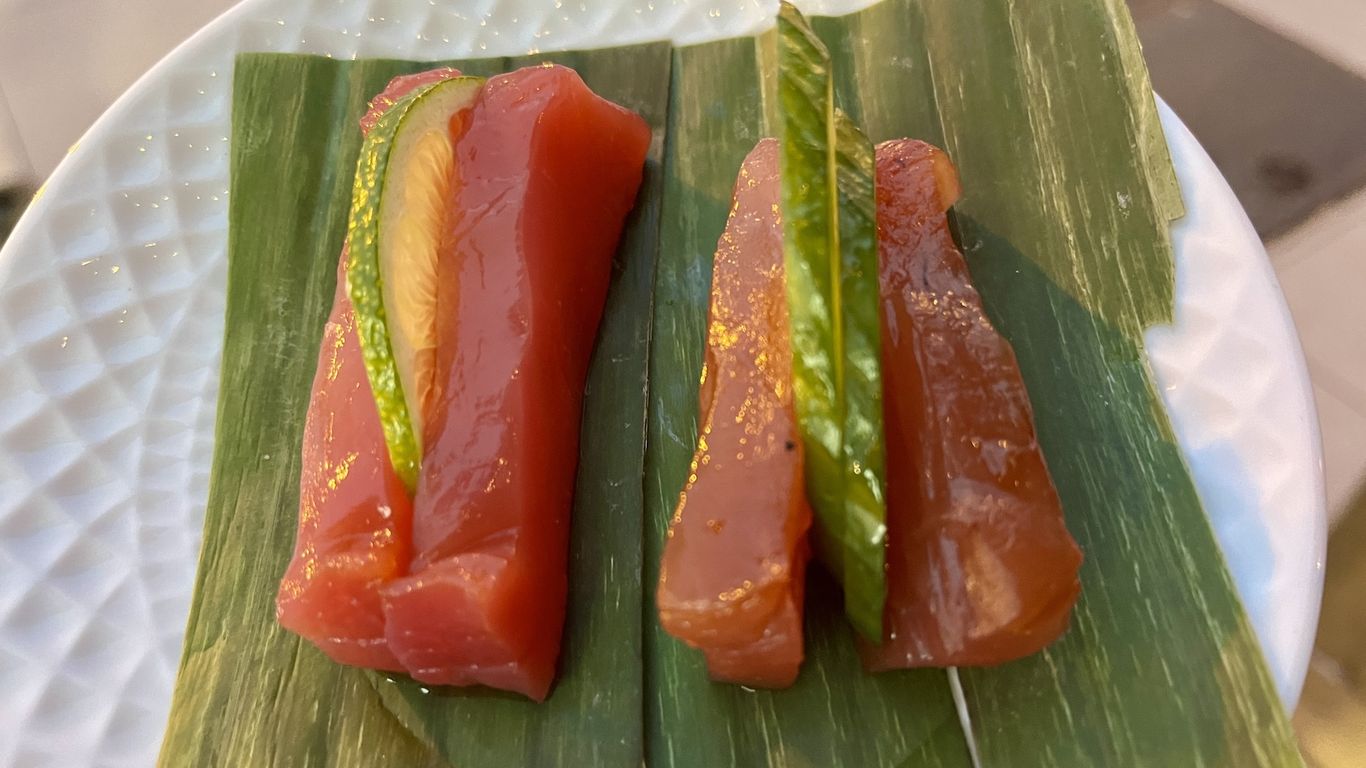Fish-free seafood could land in Chicago restaurants soon
Chicago startup AQUA Cultured Foods is part of a growing movement to create real-tasting seafood substitutes. AquA Cultured Foods, a company in West Loop, has developed a patent-pending process to create fish-like products using cellulose, an insoluble fiber found in fruits, vegetables and other plants. The company uses this method to create a layer of cellulose that grows on top of the food. This adds a flavor system and a color system, creating the fish-free tuna that resembles a tuna filet. The products, which are similar to real tuna and scallops, can be served as sashimi, ceviche, maki and crudo for health and sustainability reasons. They are not yet approved by the Food and Drug Administration but hope to secure approval this year. Aqua expects to serve these products in at least 10 Chicago restaurants by the fall.

Yayınlanan : 4 hafta önce ile Monica Eng içinde Lifestyle
At a recent West Loop dinner, AQUA Cultured Foods presented fish-free tuna (left) next to real tuna as a test. Photo: Monica Eng/Axios
The big picture: Aqua Cultured Foods' products are part of a growing movement to create real-tasting meat and seafood substitutes, with innovations using everything from fungus to plant products and cell growth technology.
• The West Loop company has worked for three years to create fish-like products via a patent-pending process using cellulose, an insoluble fiber found in fruits, vegetables and other plants.
How it works: Anyone who has ever home-brewed kombucha will be familiar with the layer of cellulose, called a SCOBY (symbiotic colony of bacteria and yeast), that grows on top. Aqua uses a similar method.
• "We basically take sugar, water and nutrients, add our microorganism to that broth and let it sit in a temperature-controlled room for a couple of weeks," Aqua co-founder Brittany Chibe says, noting that a layer of cellulose grows in that solution.
• "We put that cellulose through a pasteurization step and add a flavor system and a color system, so when you see our tuna, it essentially looks just like a tuna filet."
Between the lines: The products — which can be served as sashimi, ceviche, maki and crudo — cater to those who want to cut their meat consumption for health and sustainability reasons.
Comparable to real tuna and scallops, the Aqua versions will sell for about $27 to $28 a pound.
• Chibe says they're focused on offering their product in restaurants because "70% of seafood is consumed outside the home."
The intrigue: The products are not yet approved by the Food and Drug Administration, but Chibe says they hope to secure approval this year.
• Aqua says cellulose is safe to eat and already commonly used in foods.
With Aqua products, Chibe notes, you avoid seafood's potential mercury, microplastics and pesticides while enjoying a product packed with cellulose fiber and low in calories.
• But you also miss out on seafood's beneficial omega-3s.
Thought bubble: I recently tried a few dishes using Aqua products at a private dinner in the West Loop's Bambola.
• The nearly unadorned "tuna sashimi" struck me as too firm and bland, especially compared with the real thing served next to it. A brave but, at this point, unsuccessful gambit.
• And the buttery texture and oceany flavor in the "tuna tiradito" still haunts me.
• Yes, but: The "scallops" crudo with crispy rice and dill oil delivered delightful texture and taste.
What's next: Chibe says they expect to serve the seafood-less products in at least 10 Chicago restaurants by the fall.
